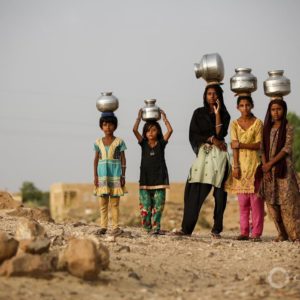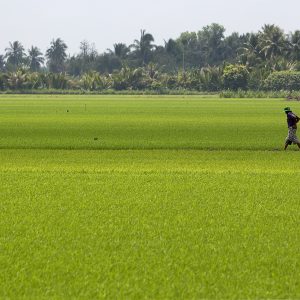The Stream, April 30: Washington D.C. Plans to Revamp or Remove All Flood-Prone Buildings
The Global Rundown
Washington D.C. announces plans to overhaul its flood-prone buildings. Flooding and landslides in Indonesia leave at least 29 people dead. A quarter of wells in drought-stricken Karnataka, India, have gone dry. Access to drinking water a key concern in Mozambique, where Cyclone Kenneth made landfall late last week. Fines for air and water violations by oil-storage facilities in the U.S. jump in the first months of 2019.
“There have been some accidents and an awful lot of expansion.” –Eric Schaeffer, executive director of nonprofit Environmental Integrity Project, in reference to a boom in petrochemical production and storage in the U.S. As the industry grows, however, so do the number of air, water, and waste violations. So far this year, penalties for environmental violations at U.S. petroleum storage facilities have already exceeded 2018 totals. Reuters
Latest WaterNews from Circle of Blue
HotSpots H2O: Worsening Drought and Conflict Loom in Southeast Asia — More than 66 million Southeast Asians had their lives disrupted by drought in the past three decades. Unless governments take decisive action soon, the future could be worse, a new report warns.
What’s Up With Water – Nitrates in Private Wells — This week’s edition of What’s Up With Water includes coverage on a second massive cyclone in Mozambique, the role of water in India’s massive general election, and nitrates in private wells in the United States.
By The Numbers
2,150 Villages in Karnataka, India, that are facing an acute drinking water shortage. About 25 percent of borewells have reportedly run dry, and 80 percent of wells are lower than long-term averages. Villagers are anxiously awaiting pre-monsoon rains, which are forecast to arrive in coming weeks. Relief Web
29 Death toll following intense rainfall in Bengkulu, Indonesia. The rain struck over the weekend and brought flash floods and landslides. Officials warn that disease may spread due to limited clean water. Reuters
Science, Studies, and Reports
Washington D.C. announced plans to upgrade or remove all flood-prone homes, businesses, and hospitals in anticipation for worsening climate change. Washington is the first U.S. city to introduce this type of policy, and says it hopes to have the project completed by 2050. Bloomberg
On the Radar
Mozambique’s second major cyclone in five weeks has left the country reeling again, killing at least 38 and swamping more villages. As rainfall continues, aid groups say the provision of clean drinking water is becoming a key difficulty. The Guardian

Kayla Ritter is a recent graduate of Michigan State University, where she studied International Relations and Teaching English to Speakers of Other Languages. She is currently based in Manton, Michigan. Kayla enjoys running, writing, and traveling. Contact Kayla Ritter






Leave a Reply
Want to join the discussion?Feel free to contribute!